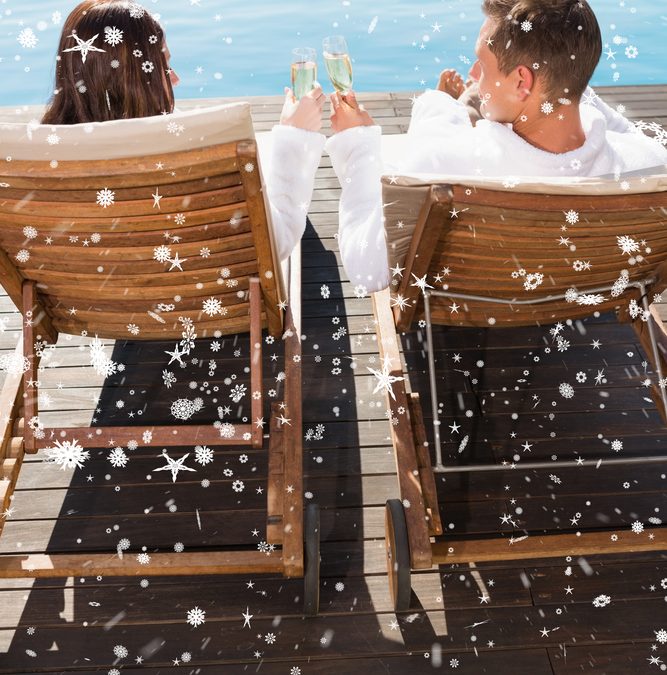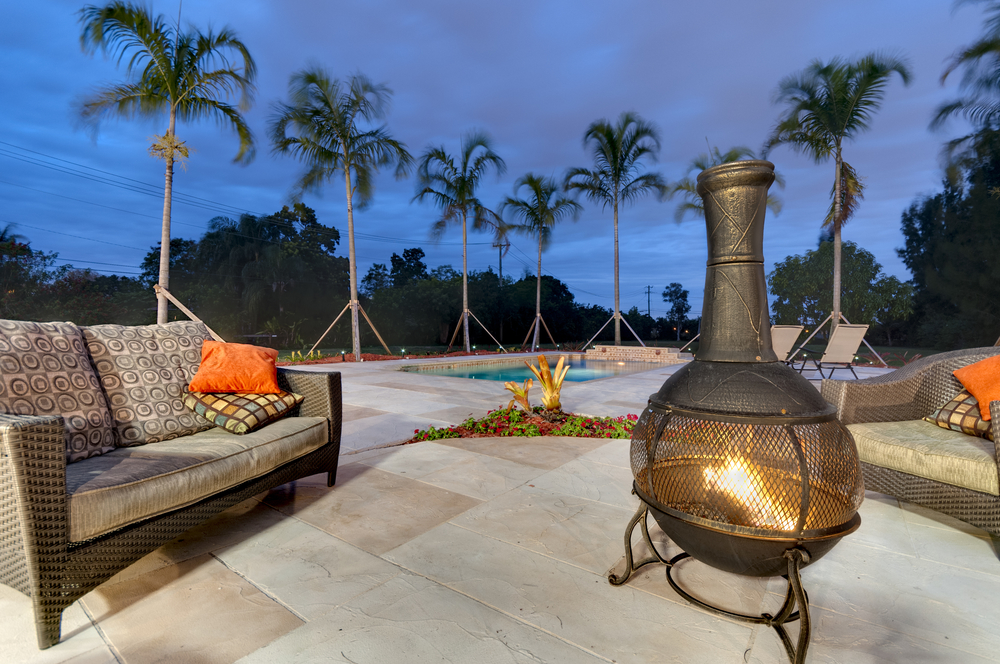Baby it’s cold outside! If you’re living in an area of the country in which the temperatures have dropped considerably, chances are you have called on the services of your swimming pool contractor to close the swimming pool up tight for you.
If, however, you have a swimming pool heater or a spa or hot tub, you may still be enjoying your backyard and the water. As a matter of fact, individuals who own hot tubs and spas enjoy the heated, jet-filled water year-round. Having a hot tub or spa means you can enjoy the water no matter the weather. Sure, it may be a bit chilly getting to the hot tub, but once you’re in… well, aaahhhhh! — there is nothing like it. NOTE: add a heated towel rack and you can get out of the hot tub, wrap yourself in a warm towel and dash back into the house!
Don’t Let Freezing Temps Damage Your Pool
For most people, they close the swimming pool at the “official” end of summer, which is Labor Day in many parts of the country. There are specific steps your pool contractor will take to assure your pool will weather (see what we did there!) the winter without any worry of freeze or damage to your pool.
Proper pool closing protects the pool and its equipment.
A swimming pool closing should be considered a necessary expense of swimming pool ownership. The process of the swimming pool closing protects the equipment, the pool itself and gets the water chemistry in line after some of the water has been drained. An algaecide, added during the closing process, will keep algae from taking hold on those rare, warm sunny days in the winter.
Here are steps to take (or that your pool contractor will take) when closing the pool if you live in an area prone to freezing (with the wacky weather patterns the country has been experiencing could mean that a freeze could hit any area of the country):
- Balance pool water chemicals.
- The water will be shocked, too to kill off any bacteria that may remain after the pool is cleaned and the chemicals balanced.
- The water level will be lowered to below skimmer level. Remember, frozen water expands and you don’t want any expansion of frozen water to damage the structure of the pool.
- Water will be blown out of plumbing and equipment water lines. Water left, again, will expand and crack or destroy the pipes and equipment.
- Swimming pool “antifreeze” will be added to the lines to prevent freezing of any water that may not have been blown out of the plumbing or equipment lines.
- The final steps include putting in pool floats (they can be beach balls, floats made for winter closing or gallon milk jugs filled with water) to prevent the surface of the water from thoroughly freezing. The floats will also keep the cover from falling into the pool.
- The winter cover will be put in place and secured. Check the pool cover during the winter, especially if there is a rainfall or a thaw. Use a pool cover vac to remove standing water. Resist the urge to remove chunks of ice because you could tear the cover during the process.
For those who live in milder climates, here are some pool closing steps for you to consider:
- You will need to run the pool pump when the temps drop below freezing (32 degrees). A choice pool owners in mild climates need to make is whether to completely drain the pool pump and remove it or to keep it intact. If not removed and drained, you MUST run it to prevent freezing and damage.
- Don’t neglect pool chemistry. The water must remained properly balanced with its chemicals. Sanitzed water is key during winter months.
- Using a pool cover is just good pool ownership practice. Covering it protects it from dirt and debris muddying up the water. When it’s covered you will have fewer hours of pool maintenance ahead of you in the winter months.
For those who keep the pool open year round or who have a hot tub or spa, you may want to invest in a fire feature and heated towel racks. A fire feature and some warm, comfy blankets will make the outdoor space as cozy as your home.
Remember, your pool contractor is available year round for the task if you don’t want to spend the time doing it yourself.


